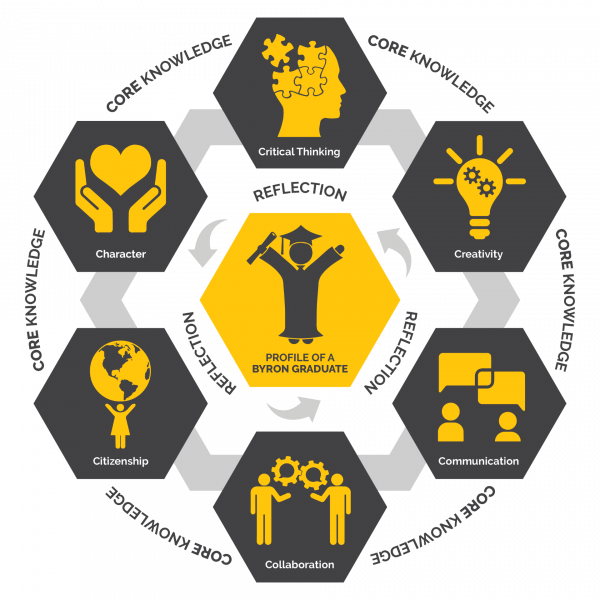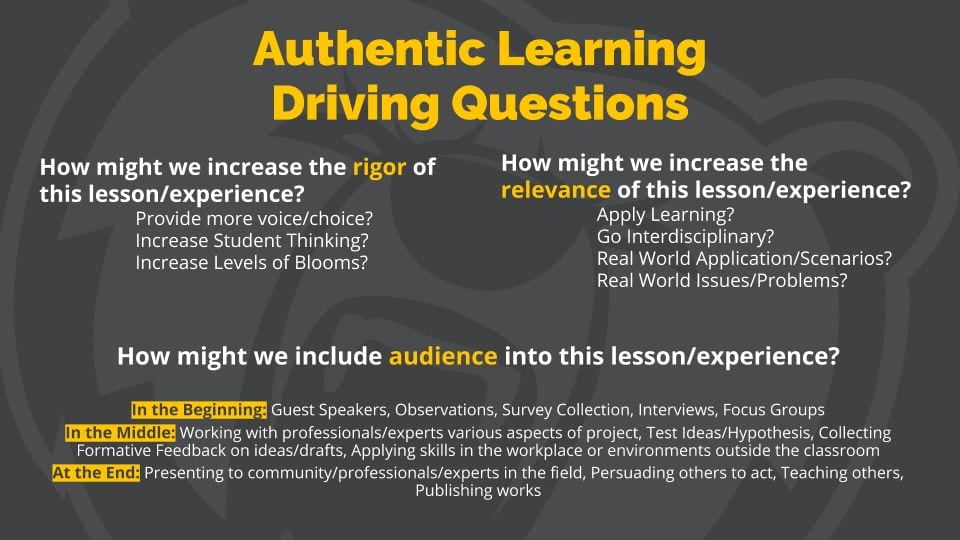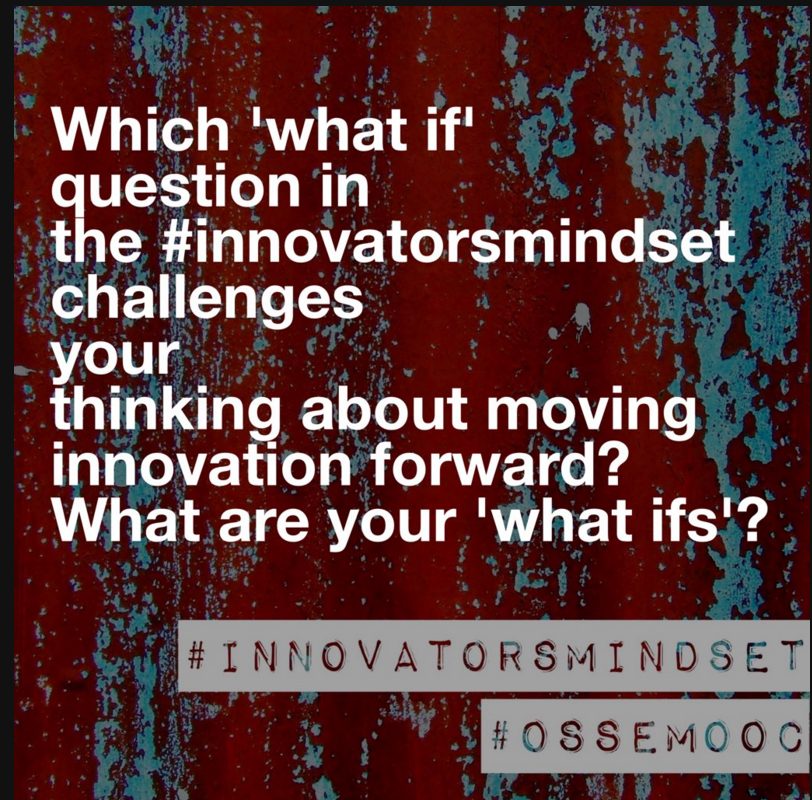It’s hard to believe that we are embarking on the year 2020. I can remember writing our very first technology plan and thinking of 2020 as something mythical, magical, or even George Jetsonian! We have introduced many tools, apps, and devices into our system. Some have remained and have improved over the years while others have gone by the wayside. What has never gone by the wayside? Awesome teachers who have designed awesome student learning experiences. (with or without technology)
Our Profile of a Graduate is exciting work and our C’s are at the forefront of what we do. Core knowledge is still critical as is the foundational knowledge of our content/curriculum. But in a Siri, Alexa, Hey Google world… what our students know, what they know how to do, and how they learn is crucial in the year 2020 and beyond.
When learning experiences are authentic, our Profile of a Graduate (PoG) C’S will be a natural byproduct of the learning. Typically the more rigorous and relevant the learning task becomes, the more authentic and meaningful it is to the student.
Utilizing the Rigorous and Relevant Framework, we have created a few driving questions for you to consider when designing deeper learning experiences.

Graphic via @plugusin
What about technology? Technology can be very powerful tool especially as tasks become more authentic. At our students’ fingertips, it provides them with a plethora of resources, research, and data they can use to analyze, interpret, evaluate and make informed decisions. It allows them to communicate their creative ideas, research, solutions, and thinking. It can provide them with tools to collaborate and seek feedback in the classroom, down the hall, or across the continent from students, teachers, and experts.
Technology can also play a significant role in citizenship and character as well. In 2020 and beyond, our students’ digital footprints are going to matter even more than today. They will have to grow comfortable in showcasing who they are and what they can do. They will need to learn how to network and find people to make them better through critical feedback. And finally, they can use technology to create solutions from real-world problems and inform and inspire others to act!
However, technology is NOT a silver bullet.
Author Johns Spencers shares (Nov 2019),
“ If we want to prepare our students for this future, we shouldn’t focus on the solely future. As a teacher, I’ve seen the promise of interactive whiteboards, personalized learning programs, and one-to-one netbooks to revolutionize education. Years later, many of these gadgets are now obsolete.But certain strategies will never be obsolete. Deep conversations. Meaningful collaboration. Epic projects. Creative thinking. Curiosity. These are the strategies that will help students become adaptable, nimble, and able to iterate. If they can think divergently and make connections between unrelated ideas, they’ll actually anticipate change more quickly. This idea is at the heart of vintage innovation.”
Check out his latest video – Vintage Innovation to learn how the past practices with new ideas and tools can merge into something wonderful!



